30 Jun 2014
Does Addiction Need To Lead To Divorce?
Addiction can wreak complete havoc on a marriage. The addict partner may neglect or even abuse his or her spouse, drain the family’s finances, and be completely unavailable to any family member. The resulting feelings in the non-addicted spouse often include depression, resentment, anger, and even outright hatred. It seems inevitable that these marriages are headed for divorce, but when both partners make a commitment to work through the issues, that outcome can be avoided.
How Can The Addict Turn Things Around?
 If you are the addict and you want to save your life and your marriage, the first and most important thing you can do is to get treatment for your addiction. Commit to your treatment plan and work hard to get sober and stay sober. This step is a powerful statement to your spouse about your intentions. Actions always speak louder than words; if you have promised your spouse again and again that you would get help but didn’t follow through, only action will save you now.
If you are the addict and you want to save your life and your marriage, the first and most important thing you can do is to get treatment for your addiction. Commit to your treatment plan and work hard to get sober and stay sober. This step is a powerful statement to your spouse about your intentions. Actions always speak louder than words; if you have promised your spouse again and again that you would get help but didn’t follow through, only action will save you now.
In spite of making the move to get help and make things better, some marriages fall apart once the addicted spouse enters recovery. Seeking addiction treatment means more time that you need to focus on yourself and your recovery to the neglect of others. As you go into rehab, talk to your spouse and explain that you will need to be self-involved for a little bit longer, and that it is necessary in order for you to get well again. Ask for patience and time. Involving your spouse in the process to some extent can be helpful for your marriage. Consider including some therapy sessions with the both of you so you can start working on rebuilding your relationship as you learn to be sober.
How Can A Spouse Forgive?
If you are the non-addict, forgiveness and repairing your relationship with your spouse may seem impossible. You have been hurt and ignored, time and time again, but as long as your spouse is seeking treatment, there is hope. Start on the path to forgiveness by learning more about addiction. The more you understand the disease, the more likely you will be to develop some compassion for your spouse.
It may also be helpful for you to seek some counseling. See a therapist who specializes in helping people who have been hurt by addicts. Also consider joining a support group for the loved ones of addicts. You can learn a lot from the experiences of others who have been in your position. The support and camaraderie can also be a powerful tool for healing. Once you have taken the time to work on yourself, be prepared to forgive and to get involved in your spouse’s treatment. Your marriage cannot move forward if you still harbor grudges and resentments.
What if Divorce Is The Best Option?
Despite your best efforts your marriage may be headed for failure. How do you know if divorce is your best option? If you are the recovering addict, no matter how much you try, your spouse may not be able to forgive you or get past the damage you have caused. If you are the injured party, you may try everything to get your spouse to stay clean, but you see failure again and again. If you can’t live with your spouse anymore, you may need to follow through with a divorce. Even if you do split up, keeping up with therapy for both spouses is crucial. You have both been damaged and you both need healing, no matter what happens to your marriage.
If You Or Your Spouse Is Struggling With An Addiction – Call Us Now – We Are Here To Help!
People who experience serious problems with the non-addicted abuse of stimulant drugs (e.g., amphetamine, cocaine and methamphetamine) and people addicted to stimulant drugs typically qualify for a diagnosis called stimulant use disorder. After entering treatment for their problems, some individuals with this disorder successfully remain abstinent from stimulant use, while others relapse back into active stimulant intake.
In a study published in June 2014 in the journal Drug and Alcohol Dependence, researchers from a U.S. university and two private institutions compared the brain functions of people with stimulant use disorder who remain abstinent to the brain functions of people with the disorder who relapse.
Stimulant Use Disorder
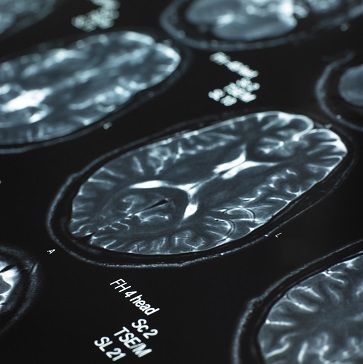 Stimulants are powerful substances that substantially speed up activity in the nerve cells that power the central nervous system (spinal cord and brain), and thereby trigger a speedup in key body functions such as the baseline heart rate and breathing rate. The brain changes associated with stimulant use include the onset of an intense sensation called euphoria, which emanates from a part of the brain commonly referred to as the pleasure center.
Stimulants are powerful substances that substantially speed up activity in the nerve cells that power the central nervous system (spinal cord and brain), and thereby trigger a speedup in key body functions such as the baseline heart rate and breathing rate. The brain changes associated with stimulant use include the onset of an intense sensation called euphoria, which emanates from a part of the brain commonly referred to as the pleasure center.
Some stimulant users become involved in a pattern of abuse when they try to recreate euphoric feelings in their pleasure centers, while others establish a pattern of abuse based on a misguided desire to do such things as increase alertness or improve academic performance.
Over time, habitual stimulant abusers may become stimulant addicts when their brains undergo long-term changes that produce physical dependence, as well recurring drug cravings, loss of control over stimulant intake or a number of other potential symptoms.
The stimulant use disorder diagnosis applies to non-addicted abusers who fall into a dysfunctional pattern of stimulant-related behavior, as well as to people affected by physical stimulant dependence and addiction. The American Psychiatric Association officially established this diagnosis in 2013 as a specific form of a larger illness classification called substance use disorder. Stimulant use disorder replaces independent diagnoses for both stimulant abuse and stimulant addiction. This replacement occurred because current evidence strongly supports a high degree of overlap for symptoms of abuse and addiction in affected stimulant users.
Stimulant Relapse
People in treatment for stimulant abuse/addiction need time to detoxify from active drug use and recover from the long-term changes in their normal brain function. A chief obstacle to this process is the continuing presence of strong urges to consume more of a given stimulant. Typically, these urges are intensified by cues in the everyday environment that recovering stimulant users have previously learned to associate with drug intake. Even in people who ultimately recover and establish a long-term abstinent lifestyle, the persistence of drug-using urges can trigger a relapse either during or after treatment. Relapses are a fairly common occurrence, and addiction specialists typically take them into account when devising treatment strategies for their patients/clients.
Are There Brain Differences In Those Who Relapse On Stimulants?
Researchers from the University of Minnesota, the Hazelden Foundation and a private psychiatric practice used modern imaging technology to compare the brain functions of people who relapse back into stimulant use during or after treatment to the brain functions of people who avoid stimulant use during or after treatment. All told, 18 people diagnosed with substance use disorder took part in the study, as did a second group of 15 people not affected by any form of substance abuse. The researchers performed two sets of brain scans on all of these individuals, and followed up half a year later to see which stimulant users had relapsed back into drug use.
With the advantage of hindsight, the researchers concluded that, at the initial bran scan, the participants who eventually relapsed had far more profound changes in the function of parts of the brain responsible for the critical tasks of maintaining emotional control and regulating levels of pleasure and reward. The participants who relapsed also gradually developed a reduced level of activity in these brain areas in the early stages of their recovery.
The study’s authors believe that the decline in brain function found in the participants who ultimately relapsed back into drug use may serve generally as a physical sign of heightened risks for relapse in recovering stimulant users.
Call Us Now If You Or A Loved One Is Struggling With Addiction Or Has Relapsed. Help Is Just A Phone Call Away!
The problem of prescription drug abuse is one that touches almost everyone in some way. Millions of Americans have abused prescription drugs and are at risk of becoming addicted or even of having a fatal overdose. Teens are particularly vulnerable and don’t always understand the dangers associated with prescriptions. Teens today are abusing prescription drugs in greater numbers than any other age group. Learn how to keep your teen safe in the face of this epidemic.
Which Drugs Are Teens Abusing?
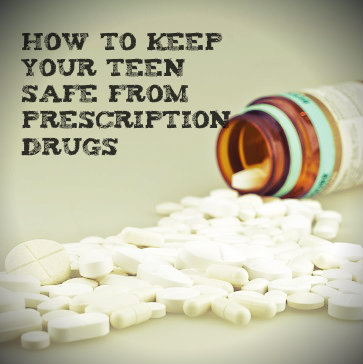 Teens are abusing prescription painkillers in record numbers. These are narcotic controlled substances and are highly addictive and easy to overdose on. In the last 20 years, the number of people between the ages of 12 and 17 that abuse these painkillers has increased ten-fold. No teen demographic is excluded from these statistics. Teens from all socioeconomic backgrounds, of all races, and of both genders are abusing painkillers.
Teens are abusing prescription painkillers in record numbers. These are narcotic controlled substances and are highly addictive and easy to overdose on. In the last 20 years, the number of people between the ages of 12 and 17 that abuse these painkillers has increased ten-fold. No teen demographic is excluded from these statistics. Teens from all socioeconomic backgrounds, of all races, and of both genders are abusing painkillers.
The other category of prescription drugs being abused by teens is stimulants. Stimulant medications are typically amphetamines prescribed for children with attention deficit hyperactivity disorder, or ADHD. Teens abuse them mostly as study aids. They have the effect of keeping the user awake and allowing for more focus and concentration. In a competitive academic world, many teens turn to these drugs to get better grades. The risks are high, of course, and include addiction, long-term health consequences and overdose.
How Can I Keep My Teen Safe From Prescription Drugs?
One of the scariest aspects of the trend in teen prescription drug abuse is that parents are largely unaware of the problem. As many as one in ten teens abuses stimulants, yet most parents have no idea what’s going on. How can you keep your teen safe when you don’t know there is a problem? The first thing you can do to protect your teen is to get to know his activities. By developing an open, communicative and trusting relationship with your teen you will be better tuned in to what is going on with him. You will be more likely to notice if something seems off, which could be attributed to drug abuse.
As you educate yourself about prescription drug abuse, also educate your teen. Knowledge is power and many teens abuse these drugs thinking that they are mostly harmless. If doctors prescribe them, sometimes even to kids, they must be safe, right? This attitude is dangerous. Learn about the risks of taking these medications without a doctor’s supervision and share what you learn with your teen.
It is also important that you minimize your teen’s access to drugs. There are many reasons teens abuse drugs, but one reason they may turn to these prescriptions more than most other substances is access. Most people abusing prescription drugs get them from a friend or family member. If anyone in your family has been prescribed a painkiller or stimulant, make sure it is kept in a secure location that your teen cannot access. Teens also get prescriptions from illegal online pharmacies that don’t check for prescriptions. Control your teen’s access to the Internet and check his history from time to time.
The problem of prescription drug abuse is a serious and ongoing one, for both adults and teens. To keep your teen safe from the epidemic of prescription abuse you need to be aware and knowledgeable. Talk to your teen and make sure he knows that he can come to you with problems. Discuss the risks of abusing drugs and restrict his access to them; take these important steps to reduce the chances that he will experiment with prescriptions.
If You Suspect Your Teen Is Abusing Prescription Drugs – Don’t Hesitate – Call Us Now!
25 Jun 2014
Are You Addicted To Tanning?
Tanning addiction is an example of what experts term a process or behavioral addiction. Unlike drug or alcohol addiction, there is no substance consumed; yet many of the symptoms overlap. Going for a tan, whether at a salon with artificially produced light or at the beach and under the sun, poses many risks, not least of which is skin cancer. Getting a little sun is healthy, but becoming obsessive about getting that golden glow could prove fatal.
What Is Tanning Addiction?
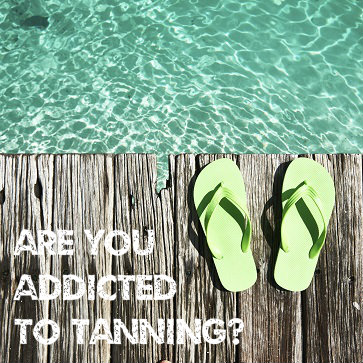 A process addiction is one that involves a behavior rather than a substance. People can become addicted to gambling, shopping, sex or even getting a tan. Research indicates that tanning addiction is a real phenomenon and one that mostly impacts younger women. What happens when you tan that can lead to an addiction is the same thing that happens when someone takes a hit of a drug, or wins at the blackjack table: you feel good.
A process addiction is one that involves a behavior rather than a substance. People can become addicted to gambling, shopping, sex or even getting a tan. Research indicates that tanning addiction is a real phenomenon and one that mostly impacts younger women. What happens when you tan that can lead to an addiction is the same thing that happens when someone takes a hit of a drug, or wins at the blackjack table: you feel good.
Exposure to both sunlight and the artificial light of a tanning bed produces a pleasurable release of endorphins in the body. Until it becomes uncomfortably hot, being out in the sun simply feels good. It’s also a powerful mood booster. As with substance abuse, some people are susceptible to abusing the feel-good sensation of tanning. They seek out the good feeling, as well as what they perceive to be an attractive tan, over and over again. Research shows that people addicted to tanning experience many of the same physical and psychological symptoms as alcoholics and drug addicts.
How Do I Know If I’m Addicted To Tanning?
A good way to check if you might be addicted to tanning is to look at those symptoms and signs of addiction that are common to both chemical and behavioral addictions. One of the first signs of an addiction of any kind is tolerance. This means that you need to spend more and more time under the tanning lights in order to get the pleasurable feeling you are seeking. For example, you may have started out tanning once a week, but then climbed to two or three times a week and then every day.
Another important sign of addiction is withdrawal. When you have to skip a tanning session for any reason, do you feel anxious or upset? If so, your body and mind are experiencing withdrawal from your “drug.” Other symptoms of addiction include obsessive thoughts and actions. Are you constantly thinking about getting your next fix? Has your life begun to revolve around tanning? Addiction also causes you to neglect your other activities. Have you let your work or academics slide? Are your relationships suffering? If you recognize these signs in yourself, you may have a problem.
What Are The Risks Of Tanning Too Much?
Over-tanning is very dangerous. The risk of addiction is serious because it can impact your life in many negative ways even though you are not a drug user or drinker. The bigger danger, however, is the effect of the tanning on your skin and your health. Melanoma, a type of skin cancer, is the deadliest form of cancer in the U.S. and the number one most preventable factor in developing it is the use of tanning beds.
If you feel that you have a problem with tanning, cut back or stop altogether. If you find that you can’t, turn to an addiction counselor experienced in working with process addictions. With the help of a professional you can kick the habit, and in doing so you just might save your life.
24 Jun 2014
The Truth About Synthetic Marijuana
Synthetic marijuana dangers are very real and very serious. Although law enforcement has been able to crack down on much of the product, and policy makers have enacted laws to cut back on it, synthetic marijuana is still floating around on the illicit drug market. Many people believe that marijuana is a low-risk drug, especially as attitudes and laws regarding it begin to change. The real drug has its risks and harms, and so does the synthetic version. The truth behind this drug substitute is that it can cause real harm and can lead to addiction.
How Does Synthetic Marijuana Differ From The Real Thing?
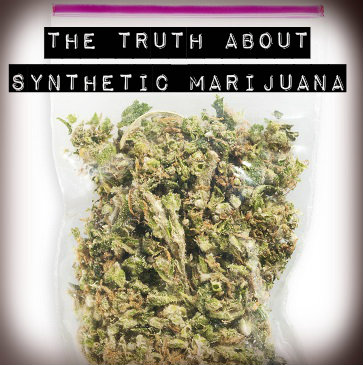 Real marijuana is the dried leaves, stems and seeds of a plant called cannabis. The plant contains psychoactive compounds called cannabinoids. Manufacturers of synthetic marijuana attempt to create compounds in a laboratory that are similar enough to the natural cannabinoids to give users the same high as the natural product. There are thousands of natural compounds and even more possibilities for synthetic alternatives. Most synthetic products consist of some type of dried plant material sprayed with a liquid containing the lab-made compounds.
Real marijuana is the dried leaves, stems and seeds of a plant called cannabis. The plant contains psychoactive compounds called cannabinoids. Manufacturers of synthetic marijuana attempt to create compounds in a laboratory that are similar enough to the natural cannabinoids to give users the same high as the natural product. There are thousands of natural compounds and even more possibilities for synthetic alternatives. Most synthetic products consist of some type of dried plant material sprayed with a liquid containing the lab-made compounds.
What Are The Health Effects Of Synthetic Marijuana?
When smoked, many of these synthetic products have a similar effect as natural marijuana. They can cause sleepiness and a pleasant sense of relaxation and happiness. Smoking real marijuana poses certain health risks, including aggravating or contributing to lung conditions. The synthetic products can be even more harmful. The reason for this is that the makers do not list everything that comes in their product. There could be any number of dangerous chemicals in it and not knowing what you are smoking is very risky.
Users have reported:
- panic attacks
- dizziness
- hallucinations
- shaking
- paranoia
- anxiety
- hot flashes
- convulsions
- periods of emotional instability
Is Synthetic Marijuana Addictive?
Marijuana is not one of the most addictive of all drugs, but it can be habit-forming, especially when used regularly and frequently. Users of synthetic products also report experiencing withdrawal and cravings when they try to stop. For this often-dubbed gateway drug, rehab is a solution to addiction. Even when an addiction is not full blown, it can be helpful to go through some kind of rehab.
A successful drug rehab program, whether for synthetic marijuana or the natural drug, is one that develops individualized treatment plans for each patient. It should be staffed by caring professionals who are experienced at working with addicts and qualified to do so. The plan should be adaptable to change with the needs of the patient.
Once you know the truth about synthetic marijuana, you will not be tempted to try this harmful drug. Its manufacturers and sellers have gone to great lengths to convince buyers that this product is mostly safe and carries a low risk. Don’t fall for the lies.
Find Out Why ER Visits For Synthetic Marijuana Are Likely To Rise
If You Or A Love One Is Struggling With Substance Abuse Or Addiction – Call Us Now – We Are Available 24/7
Asking for help is never easy. It means admitting something you’d rather not and that you need other people. When you need help for addiction you may also feel ashamed or guilty. Perhaps most difficult is asking for help from the loved ones who have suffered because of your addiction. Asking for help is crucial because no one can overcome addiction alone. Be brave and talk to the loved ones you hurt. You may be surprised to find they still support you, no matter what.
How Do I Get Past the Shame Of Addiction?
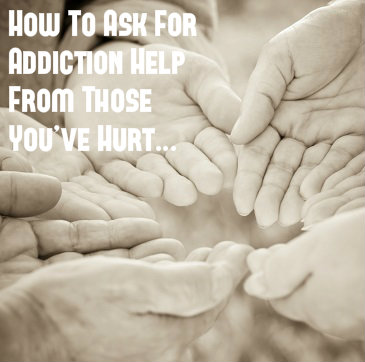 Shame is a terrible symptom of substance abuse and addiction and a common roadblock to asking for help. Understand that it is normal to feel this way. The natural response to the shame that accompanies addiction is to bury it and to deny having a problem, but this won’t help you in the long run. Shame means realizing that you are imperfect and once you accept that fact, asking for help becomes easier. No one is perfect and knowing this fact can help you connect with your loved ones who will most likely be ready to support you, even though you hurt them in the past.
Shame is a terrible symptom of substance abuse and addiction and a common roadblock to asking for help. Understand that it is normal to feel this way. The natural response to the shame that accompanies addiction is to bury it and to deny having a problem, but this won’t help you in the long run. Shame means realizing that you are imperfect and once you accept that fact, asking for help becomes easier. No one is perfect and knowing this fact can help you connect with your loved ones who will most likely be ready to support you, even though you hurt them in the past.
Learning more about your addiction can also help you to let go of shame. Read up on addiction and the latest research findings and you will see that it is a disease. Being addicted started with a choice you made, but it persists because it is a true illness that affects you physically and psychologically.
How Do I Get Past The Fear Of Rejection?
Another major roadblock to asking your loved ones for help is the fear that they will turn their backs on you. Why shouldn’t they? After all, you have broken their trust, let them down and maybe you even hurt them emotionally or physically because of your addiction. You probably see yourself now as unworthy of their love and help.
You have to see yourself as worthy of your loved ones’ time and attention. If you can’t see that, you may never ask for the help you desperately need. Think back to a time before your addiction. Remember the kind of person you were and the relationships you had with your family. Maybe you and your sister were best friends. You can probably remember a time when you were a help to your parents, rather than a burden. When you can remember the positives in the past, you can imagine a future in which you are sober again. Your loved ones will remember the old you too and will not likely reject your request for help.
How Do I Ask For Help?
Once you have recognized, acknowledged and gotten past your shame and fear, it’s time to take action. First, pick the person you think is most likely to be ready and willing to support you as you seek recovery from your addiction. For most people this means turning to a close family member, like a parent or a sibling. You know your family and friends best, so choose the person or people you think will help you in spite of all you have done to hurt them.
It never hurts to practice, so plan what you want to say. You might want to start with apologies, but be sure to stick with the main message, which is that you are ready to get help. Acknowledge out loud to your loved ones that you hurt them. They will appreciate that you are not ignoring your past wrongs. Also find a time that is conducive to a long talk. Don’t stop your loved ones on their way out the door. Take the time to find your voice and the courage you need to speak up. You may be pleasantly surprised to find that your loved ones are still there for you.
Read Our Other Inspirational Addiction Posts – Healing From Addiction Can Be Yours Today!
20 Jun 2014
Do Genes Equal Destiny In Addiction?
We know that genes play a role in the development of addiction. No single gene determines whether a person will become addicted to drugs or alcohol because addiction is a complex and chronic disease. There are multiple genes that influence addiction, and environment plays a role as well. We know that genes are important because the number one risk factor for predicting addiction is family history. If you have a family history of addiction, you probably have some of the influencing genes. This does not mean that you are destined to become an alcoholic or a drug addict. It does mean, however, that you need to be aware and careful.
Addiction Is A Complex Disease
 Addiction is not a simple matter of one gene causing the disease. It is also not as simple as defining anyone with a family history of addiction as an addict or future addict. There are so many factors, both genetic and environmental, that influence addiction that it may never be possible to accurately predict if someone will develop an addiction. Because family history is such a strong risk factor, we can be sure that genetics play some role.
Addiction is not a simple matter of one gene causing the disease. It is also not as simple as defining anyone with a family history of addiction as an addict or future addict. There are so many factors, both genetic and environmental, that influence addiction that it may never be possible to accurately predict if someone will develop an addiction. Because family history is such a strong risk factor, we can be sure that genetics play some role.
Those without a family history of addiction may also develop addiction. This shows that environment plays a role as well. Experiencing childhood trauma, such as abuse, or having a mental illness can influence the development of addiction. Still, just because there is a family history of addiction or a personal experience of negative environmental factors does not mean you targeted or marked for life. You still have choices to make about abusing substances.
What If I Have A Family History of Addiction?
With a family history of addiction, you may be carrying some genes that could make you more susceptible to addiction. Remember, though, that drinking or using a drug for the first time is a choice you make. Once you have tried them, you may be more likely than the average person to become addicted, but you never have to take that first step. Genes do not push you to try illegal drugs or to get drunk.
If you are worried about becoming an addict, there are some important steps you can take:
- Abstain -The first and most important thing you can do is simply to abstain from drinking at all and from using illegal drugs. If you need to use prescription drugs that are habit-forming, follow your doctor’s instructions regarding dosing and talk to your doctor about addiction concerns.
- Seek counseling – If you have a family history of addiction, someone in your life likely caused you emotional distress, or worse, because of their addiction. Talking about it with a therapist can help you resolve any issues you have regarding this person and can help strengthen your determination to stay sober.
- Choose sober friends – If you have never struggled with addiction yourself you do not necessarily need to stay away from people who drink, but it can help to surround yourself with friends who also choose sobriety. When you spend too much time with people who are drinking or using drugs, they may try to pressure you to join in. You don’t need that extra pressure.
- Develop a healthy lifestyle – A great way to ensure that you don’t need to use drugs or alcohol is to live a life where there’s no room for substance abuse. Develop a strong social life with supportive friends and family. Engage in fulfilling and enjoyable hobbies and activities. Eat regular, well-balanced meals, exercise and stay healthy and you will have no need for substance abuse.
Always remember that genes for addiction are not destiny. You have the power to make choices in your life and to create the kind of life you want to have. By staying positive, surrounding yourself with supportive people and avoiding drugs and alcohol, you will be taking proactive steps that will make it less likely that family history will repeat itself.
Call Us Now If You Or A Loved One Is Struggling With Addiction – We Are Available 24/7!
19 Jun 2014
What’s The Deal With Seniors And Drug Abuse?
Thinking about drug abuse, you probably picture younger people popping pills, shooting up or smoking. What is difficult is to imagine is that there is a rising problem among older adults when it comes to drug abuse. The main culprits are prescription medications. Just because a doctor prescribes them does not mean these drugs are always safe. Many prescriptions are susceptible to abuse and it is not only younger people who have used them inappropriately. In fact, surveys show that abuse among older Americans is on the rise. If you care for an older family member be aware of the issue so you can intervene if necessary.
What Are The Dangers For Seniors Abusing Prescriptions?
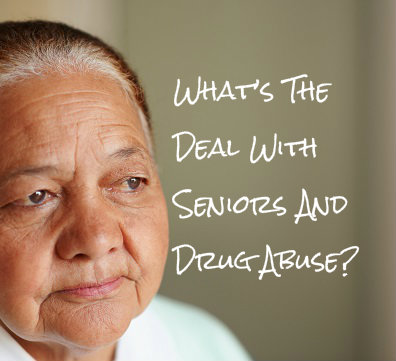 There are several prescription medications that people abuse because of the feelings they impart. For many, the abuse starts slowly and seems harmless. Just how dangerous are these medications when taken against a doctor’s direction? It depends on the medication, but with any drug the side effects will be amplified and intensified when more than the recommended dose is taken.
There are several prescription medications that people abuse because of the feelings they impart. For many, the abuse starts slowly and seems harmless. Just how dangerous are these medications when taken against a doctor’s direction? It depends on the medication, but with any drug the side effects will be amplified and intensified when more than the recommended dose is taken.
For seniors there are particular risks associated with abusing medications. Your older loved one is likely taking several medications. When she abuses one or more of them she increases the risk of a dangerous interaction between two or more medications. She may also have more health problems that could be exacerbated by taking too much of one medication. Of course, at any age there is the very real possibility that drug abuse could lead to addiction.
Which Prescriptions Are Addictive?
Any medication that has addictive potential can be abused. These drugs all give the user a pleasant feeling, which is why they can lead to dependence. Be aware of the medications your loved one is using and educate yourself as to their risks and addictive potential. There are three main classes of drugs that are most often abused: depressants, stimulants and opioids.
Depressants, also known as sedatives, have a relaxing effect on the body. For seniors, the most likely type of depressant to be prescribed is a sleep aid. Stimulants have the opposite effect. They cause wakefulness and alertness and are most commonly prescribed as ADHD medications. Your older friend is unlikely to be prescribed a stimulant. Of greatest concern may be the opioids. These are painkillers that also produce a high when taken in larger doses. Codeine, morphine, oxycodone, hydrocodone, fentanyl and hydromorphone are examples of prescribed opioids.
What Are The Signs Of Abuse?
If you have an older adult in your care, or are concerned about a parent or friend who takes prescription medications, watch out for signs of drug abuse. Look for signs of intoxication. For example, if she slurs her speech, stumbles or falls more often, or if her behavior in general seems off to you, she may be under the influence.
Also look for other signs that may be subtler, such as changes in behavior or routine. She may experience a change in sleeping habits or appetite as a result of abusing medications. You may also observe increasing irritability or confusion. She may act suspiciously as well. For instance, she might make multiple appointments with different doctors in order to get more prescriptions or start going to different pharmacies to avoid suspicion.
Some of these signs of drug abuse may also indicate a new or worsening health problem. In either instance, you should be concerned for the senior in your care. Start a conversation with her and encourage her to see her doctor to discuss options for dealing with the issue.
Read More About Seniors And The Surge In Substance Abuse – And Help Your Loved One Today!


